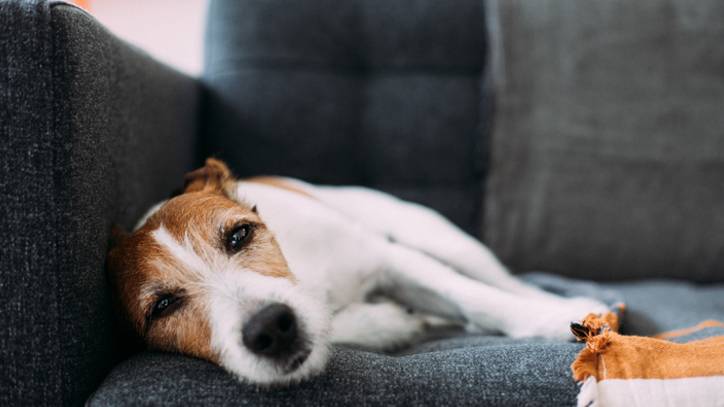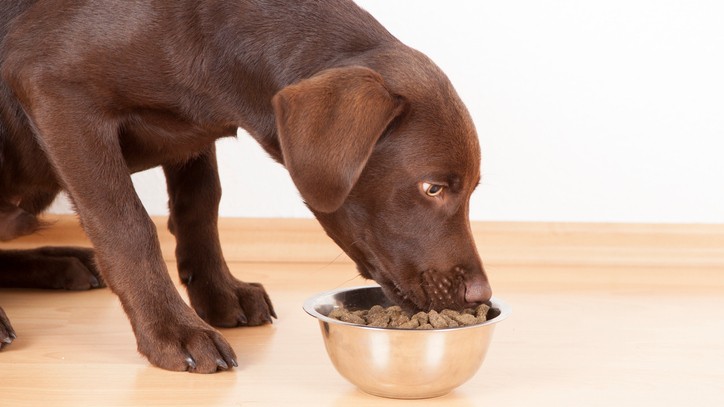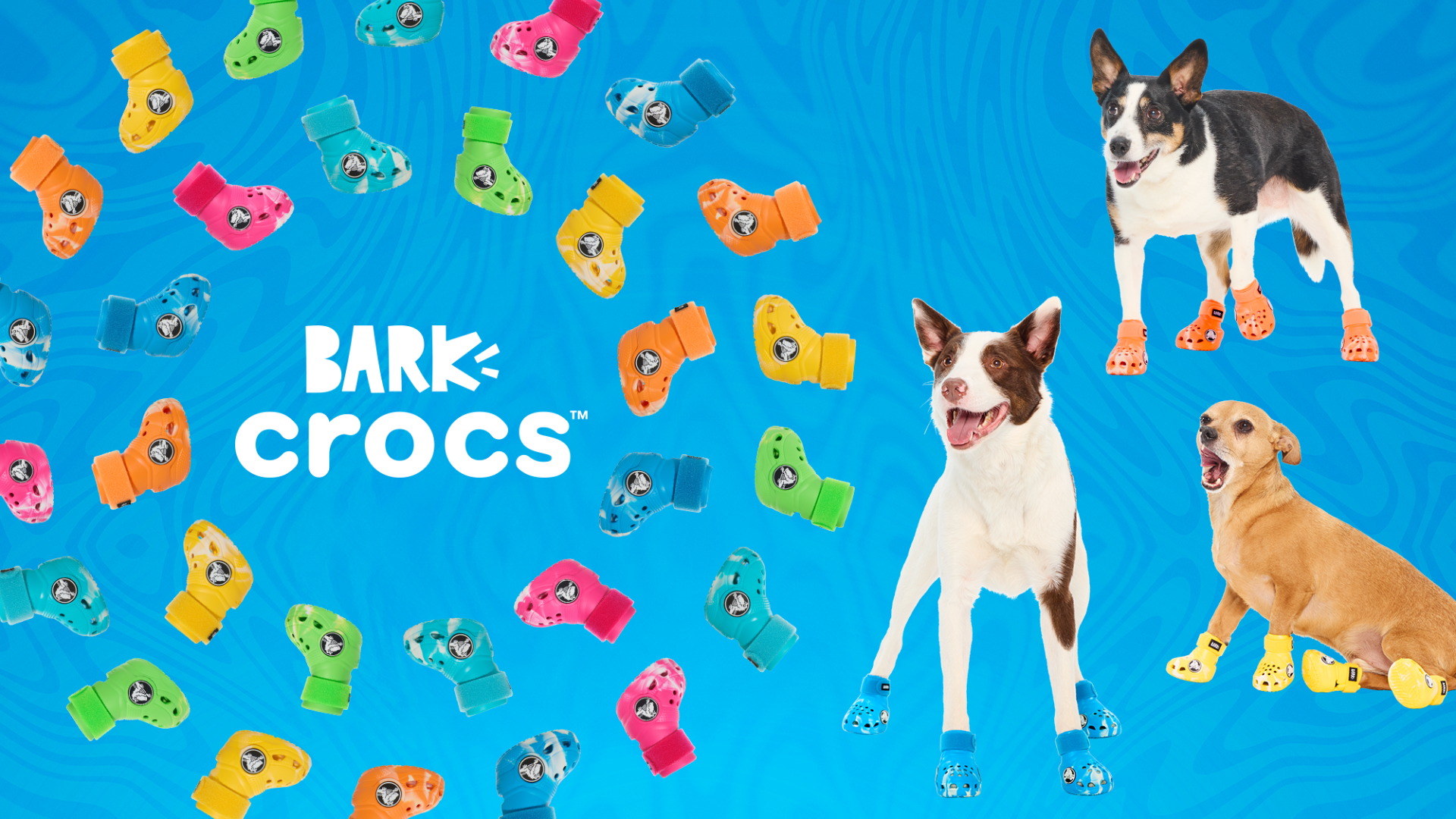IBD in dogs: Vet's guide to causes and treatment
Let’s find out about the causes and symptoms of IBD in dogs and how to help your poorly pup feel better

IBD in dogs (or Inflammatory Bowel Disease) is a poorly understood condition. Therefore, if your furry friend gets diagnosed with IBD, it can be a worrying and frustrating time. After all, no one wants to see their canine companion feeling unwell, nor spend all their time cleaning up vomit and diarrhea accidents!
So, how do you know if your dog might have IBD? What causes the condition? What treatments are available? And what's the best dog food to feed your poorly pooch to avoid any potential triggers?
This article will help you know how to help your dog at home, including what type of diet to choose and what should be avoided.
Symptoms of IBD in dogs
IBD in dogs usually causes an upset stomach. Not all dogs with IBD will show the same symptoms. The symptoms can vary depending on which part of the gut is inflamed and how long the condition has been going on.
Common symptoms include vomiting, nausea, and lack of appetite if the stomach is inflamed. On the other hand, if the intestines are inflamed, you might notice your dog has diarrhea or wind, and they might have some mucous or blood in their stools. If your dog has IBD for a while, they might lose some weight.
Causes of IBD in dogs
It’s not always simple to work out what triggers IBD dogs because it’s not fully understood. However, anything that has the potential to cause inflammation within the gut could cause IBD, including certain foods, parasites, or infections.
IBD often seems to be triggered by food sensitivities or allergies, but this doesn’t mean you’re feeding your dog poor quality dog food. Even the best dog foods can cause an upset tummy if your dog has an allergy to one or more of the ingredients.
Get the best advice, tips and top tech for your beloved Pets

Is IBD painful for dogs?
It’s miserable enough for your pup to have vomiting or diarrhea, but is it painful? Well, just like in people, intestinal cramps and wind can be painful for dogs.
If your dog has a sore belly, you might notice them stretching out in a crouched position, a bit like a yoga pose. This is known as praying position, and if your dog is doing it, you should let your veterinarian know.
Treating IBD in dogs
One of the key ways to help control IBD symptoms in dogs is to change their dog food to one that doesn’t trigger their symptoms.
But, what do you feed a dog with IBD? Don't worry; whether your dog usually eats wet or dry dog food, there’ll be a hypoallergenic diet to suit their taste! Take a look at our guide to the best dog food for allergies for ideas.
IBD can be well controlled with just a diet change in some cases. However, depending on their symptoms and triggers, your dog might need other medications, including steroids, antacids, antibiotics, and vitamin injections.
Treating IBD at home
If your dog has IBD, you’ll want to know how to care for your dog at home. The most important thing to do is find a diet that works for them and stick to it. It's not always easy to avoid giving your furry friend treats and titbits. After all, we don’t eat the same thing for every meal.
However, although a diet of just one type of dog food might seem tedious, it's exactly what your dog needs, and they won't mind one bit! Because any kind of food could cause a reaction, you should make sure all family members, especially little ones, know not to give any human food to the dog.
Of course, accidents can happen, and if your dog does experience a flare-up, try not to be too disheartened. Just go back to their strict diet and seek veterinary advice if their symptoms are severe.

What foods should be avoided with IBD?
Any protein in your dog’s diet could cause food allergy symptoms. However, this isn’t the only type of food sensitivity. Fatty or rich foods can often cause stomach upsets, so these should be avoided if your dog has a sensitive stomach.
If you're introducing any new food to your dog, it might upset their guts if you do it too quickly. Therefore, it's best to start with a tiny amount to see if it causes any unpleasant symptoms first.
Life expectancy for dogs with IBD
Once the diagnosis is confirmed, the triggers are determined, and the correct combination of treatments started, Inflammatory Bowel Disease can be controlled for most dogs. Therefore, most dogs have a normal life expectancy, even if they have to stay on lifelong treatment or a specific diet. In very severe cases, IBD can develop into intestinal cancer; however, this is very rare.
When to euthanize a dog with IBD
Putting your dog to sleep is the hardest and most heartbreaking decision you’ll ever have to make as a pet parent. When deciding whether the time is right, you should consider your canine companion’s quality of life, including their appetite, mobility, and any signs of pain.
With many conditions, including IBD, dogs will experience good days and bad days, clouding your judgment and making it hard to decide on the right time. In these situations, it can be helpful to consider the previous two weeks rather than focus on each day. If your dog has had more bad days than good days during this period, it might be time to say the final goodbye to your four-legged family member.
Summary
Inflammatory Bowel Disease is poorly understood, but that doesn’t mean you can’t help control your dog’s symptoms. With a combination of parasite control, diet changes, and medication, your veterinarian can help your dog feel better once again.
You may also be interested in: Expert advice on what to do when your dog’s stomach is gurgling
Dr Hannah Godfrey is a small animal vet who graduated from the Royal Veterinary College in 2011 and began work straight away at a busy mixed practice. Initially, she treated all species, but focussed on small animals from 2014. She has a passion for soft tissue surgery, ultrasound, and canine and feline dentistry, having completed additional training in these areas.

